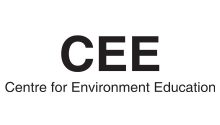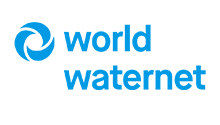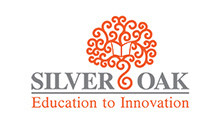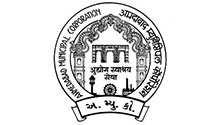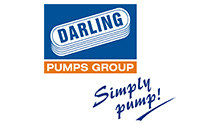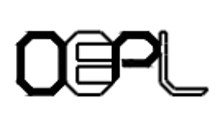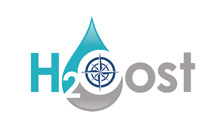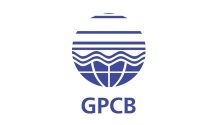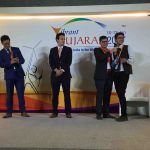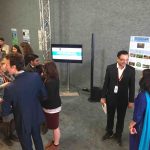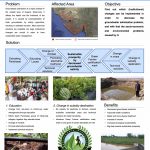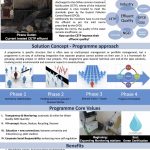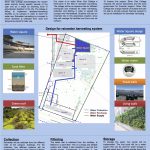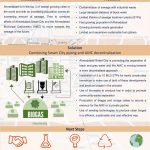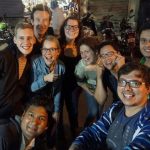
- This event has passed.
Wetskills India 2017
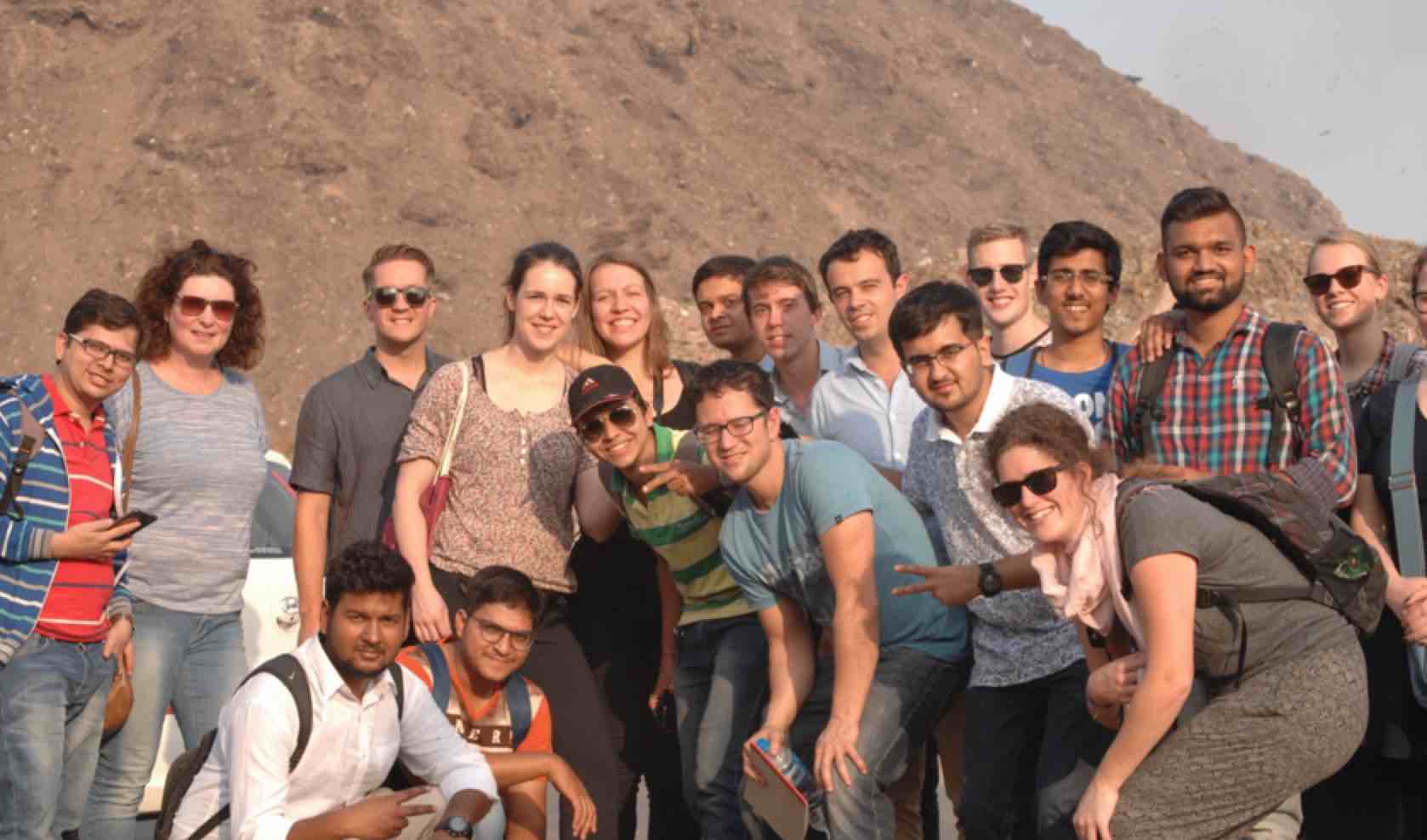

Wetskills Foundation with partners Center for Environment Education, DuurzaamDoor (RVO.nl) and Gujarat Pollution Board organized the second Wetskills edition in India.
For the daily blogs, find the link.
Practical Information

Flyer programme Wetskills-India 2017
Host: Center for Environment Education
Partners: Duurzaam Door (RVO.nl programme), NBSO Ahmedabad, Gujarat Pollution Control Board, World Waternet, Odhav Enviro Projects Ltd, Silver Oak University Ahmedabad, Ahmedabad Municipal Corporation & Darling Pumps
Overview of study cases Wetskills-India 2017
Event: Vibrant Gujarat
Venue: Mahatma Mandir, Ghandiagar
Locations: Ahmedabad, Ghandinagar & Rani ki vav
Facts:
Participants: 20
Cases: 5
Countries: 2 (India and The Netherlands)
Event Posters

Event Cases

Case 1: Institutional change as a key for sustainable water management
Case owner: World Waternet
Groundwater salinization causes socio-economic and environmental challenges in the coastal area of Gujarat. Water for drinking and agriculture is becoming under stress, while the water use is growing. Since the acknowledgement of this challenge in 1976, numerous of (opinions about) technical measures did not prevent the groundwater becoming more saline. An institutional change could enforce sustainable water management. It is time find (adapted) governmental bodies and create their respective (legal) responsibilities, based on the current situation. Better water governance leads to better water management and avoid the increase of groundwater salination in Gujarat.
Case 2: Improving industrial waste water treatment for Odhav Industrial Estate in Ahmedabad
Case owner: Odhav Enviro Projects Ltd (OEPL)
The Odhav Industrial Estate accommodates 219 small and medium scale industrial units just East of Ahmedabad. The units produce a variety of products, including pharmaceuticals and drugs, dyes, pigments, all sorts of chemicals and textiles. The businesses discharge their waste water – sometimes after pre-treating it – to a Collective Effluent Treatment Plant (CETP) and Treatment, Storage and Disposal Facility (TSDF), where the waste water is treated before it discharges through a big pipeline into the River Sabarmati. The quality of the incoming waste water differs per industrial unit and over time. This makes it difficult for the CETP/TSDF operators to guarantee a consistent after-treatment effluent quality, which at the moment sometimes exceeds the set standards for certain substances. It is up to the team to find out how Odhav Enviro Projects Ltd can improve the industrial waste water treatment process to meet water quality standards of the effluent.
Case 3: Designing a rainwater harvesting system for Silver Oak College campus
Case owner: Silver Oak College of Engineering & Technology (SOCET)
Silver Oak College of Engineering and Technology (SOCET) is a new college in Ahmedabad established in 2009, home to about 4000 students and sitting on a nice campus consisting of four major buildings with high class infrastructure. Conserving water for coming generation is high on our agenda. Clean freshwater, however, is scarce because of a high demand, pollution and a relatively low supply in arid Ahmedabad. Rainwater harvesting is a promising solution to a variety of issues faced: providing sufficient domestic supply during the dry season, replenishing groundwater storage, clogging of storm drains during heavy showers, reducing groundwater pollution and erosion, reducing cost of current supply system and saving on pumping costs of groundwater SOCET wants to reap these benefits on their campus. It is up to the teams to find out how SOCET campus can best benefit from a rainwater harvesting system.
Case 4: Bottled biogas from the Sewage Treatment Plant of Ahmedabad Municipal Corporation
Case owner: Ahmedabad Municipal Corporation (AMC)
Ahmedabad Municipal Corporation has set up a Sewage Treatment Plant (STP) of capacity 180 million liters per day. The sewage is treated up to secondary treatment by anaerobic digesters and fine bubble diffused aeration. More than 10000 m3 of biogas is generated from anaerobic digester which is refined and bottled for further uses so as to serve the purpose of pollution prevention and revenue generation from the STP. Bottling of biogas is facilitated by a bottling unit- established nearby to the STP. One problem we face, however, is that the biogas so produced from the STP has been observed to contain excessive oxygen in it. This oxygen deteriorates the compression rate of the biogas. This issue needs to be resolved. Moreover, we ask your help in finding strategies to achieve the full potential of biogas bottling. It is up to the team to find out how AMC can resolve current issues, as well as how AMC can best benefit from our STP and biogas bottling plant?
Case 5: Floating pump for Ahmedabad urban water planning
Case owner: Darling Pumps (in cooperation with ETEC & Robusto Industrial)
Ahmedabad is a fast growing city with many water challenges. Due to the limited rainfall, supplying sufficient water to agriculture, households and industries can be challenging. On the other hand, when it rains, flash floods can occur. In case of both water shortages and excess water, the innovative floating pumps by Robusto Industrial can contribute to a robust urban water strategy for Ahmedabad. But how? And where? And by whom? The floating pumps are quickly installed, no prior infrastructure is required, they are impervious to adverse operating conditions such as strong currents or foreign materials and they are durable. It is up to the team to find out how the floating pumps by Robusto Industrial can be part of the urban water management plan for Ahmedabad?”
Event Partners


